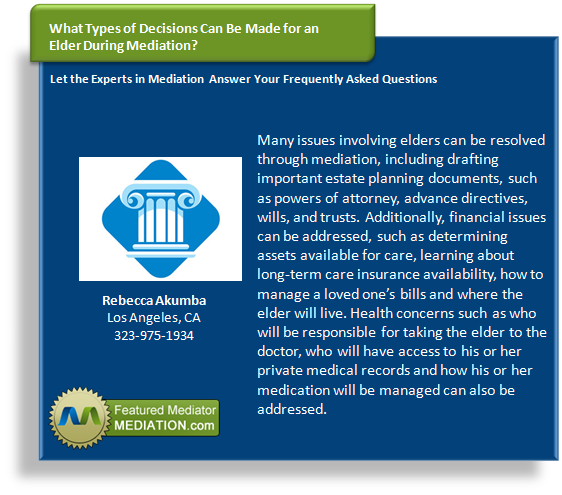
In the space of three months, what started as a minor health problem in central China has become a global pandemic. Global commerce has especially taken a big hit as a result, with stocks nosediving and businesses being unable to fulfill crucial obligations.
Commercial contracts are ordinarily designed to be contemplative. However, no one could have predicted the occurrence of a global health crisis of the proportions we are currently witnessing. As a result, there have been serious disruptions to the performance of commercial contracts as parties are left confused as to the proper course of action under their suddenly otiose agreements.
Due to this disruption in commercial relationships, many predict that there will be a spike in commercial disputes. The majority of these will also be submitted to commercial mediation. However, with the current COVID-19 outbreak, legitimate questions arise as to how this mediation may be carried out, considering the unique circumstances of this period.
How can you and your business partners act fast to vary your contractual obligations and maintain crucial relationships at this time? Will there still be a means to access the speed, efficiency, and confidentiality of mediation-facilitated dispute resolution?
This article addresses how the COVID-19 outbreak affects commercial mediation and what you can do to access speedy dispute resolution.
How the pandemic affects commercial mediation
To combat the spread of the coronavirus, the federal government and states around the US take increasingly stricter measures. These measures have the unintended (but unavoidable) effect of essentially suspending much of business as we know it. As a result, commercial mediation has been affected in several ways including:
- Increase in commercial disputes: As of this moment, the disruption in the conduct of business is causing a proliferation in disputes between partners. Many of these disputes arise due to differing interpretations of essential terms in contracts, especially those affected by the changing circumstances of the pandemic. This will result in an increased need for commercial mediation services during the period of the pandemic. It is also expected that by the time the pandemic blows over, there will be an even bigger spike in commercial disputes. These will include insurance claims; breach of energy, procurement and construction contracts; breach of carriage agreements; industrial and data privacy claims, etc.
- Legal restrictions: While there is an increasing need for commercial mediation, it is becoming even more difficult to hold these mediations. Due to lockdown measures and other restrictions geared towards slowing the spread of the virus, mediation facilities are currently shuttered and will be so for a while yet. This makes it difficult to hold physical mediation.
- Safety concerns: Social distancing and self-isolation havealso been encouraged in this period to curb the spread of the virus. As even healthy persons may be asymptomatic carriers, it is necessary to remain socially distant and avoid gatherings to stay safe.
- Disruption in already scheduled mediation sessions:Meetings earlier scheduled before the coming into effect of the lockdown orders and restriction of movement will have to be put on hold until the restriction is lifted.
Advantages of commercial mediation during the pandemic
For parties that can work around the challenges of this period, commercial mediation will provide a mass of benefits including the following:
- Flexibility: Mediation allows for flexible arrangements between the disputing parties and the mediator. This makes it a lot more desirable and flexible when compared to litigation. Parties may elect to schedule the meetings for periods they find convenient.
- Preserving business relationships: Mediation, like every other ADR method, provides for a win-win situation. This ensures the preservation of pre-existing relationships between the parties.
- Enables stress-free modification of obligations: Mediation allows parties to adopt a range of flexible and cost-effective solutions to their disputes. This includes being able to modify contractual obligations easily.
- Disarm disputes before they become litigious: One of the biggest perks of ADR is its provision for speedy dispute resolution. Parties may resort to commercial mediation to solve their issues before they become litigious. This ensures that possible problems are nipped in the bud before they start to strain the relationship.

How can commercial mediation work for you?
Considering the difficulties involved in undergoing commercial mediation at this time, be creative if they will access speedy dispute resolution. Thankfully, there are proven ways to still get the best out of mediation even during the COVID-19 outbreak.
Video and teleconferencing
Video conferencing is being mooted as one of the biggest winners in this coronavirus pandemic. This is because it has been able to proffer a viable alternative to physical meetings and workspaces.
Virtual meetings are cost-effective and potentially enable even better participation in mediation sessions. To get the best of the sessions though, it will be necessary for parties and the mediator to invest in sound video conferencing tools and systems. Conferencing applications such as Zoom and Zoho have particularly become very useful during this period.
While there are many benefits, the adoption of virtual mediation is not without its downsides though. Network strength/ technical difficulties, atmosphere for the witness, attention span, etc. are some difficulties that may be faced in the adoption of the technology.
Leveraging on technology
Leveraging on technology implies that most, if not all, of the mediation process, will be digital. Paperwork and other procedural matters will also be taken digitally.
Although courts have adopted the conferencing system, the courts only sit on essential cases. The odds of a commercial dispute falling within the set threshold is very limited. Besides, you can avoid the uncertainty of hearing and rigors of litigation by adopting Mediation.
Some of the technology that mediators and parties can leverage on during this time include conference calls, chat forums and the like. Artificial Intelligence may also provide new solutions for use within the mediation workspace.
A bit of socializing could also be done through the use of social media. Interactions may be facilitated amongst lawyers and mediators through social media. Webinars and professional training may also be conducted virtually.
We can help resolve your commercial disputes
At this difficult period, the recovery of businesses and individuals will depend on how fast they can react to challenges and chart a new roadmap for success. Doing this effectively will depend on having an easily accessible forum that ensures you and your partners are on the same page.
If you are interested in seeing how commercial mediation can work for your business at this time, please get in touch with us.
George Murphy
https://disputesolved.com/












